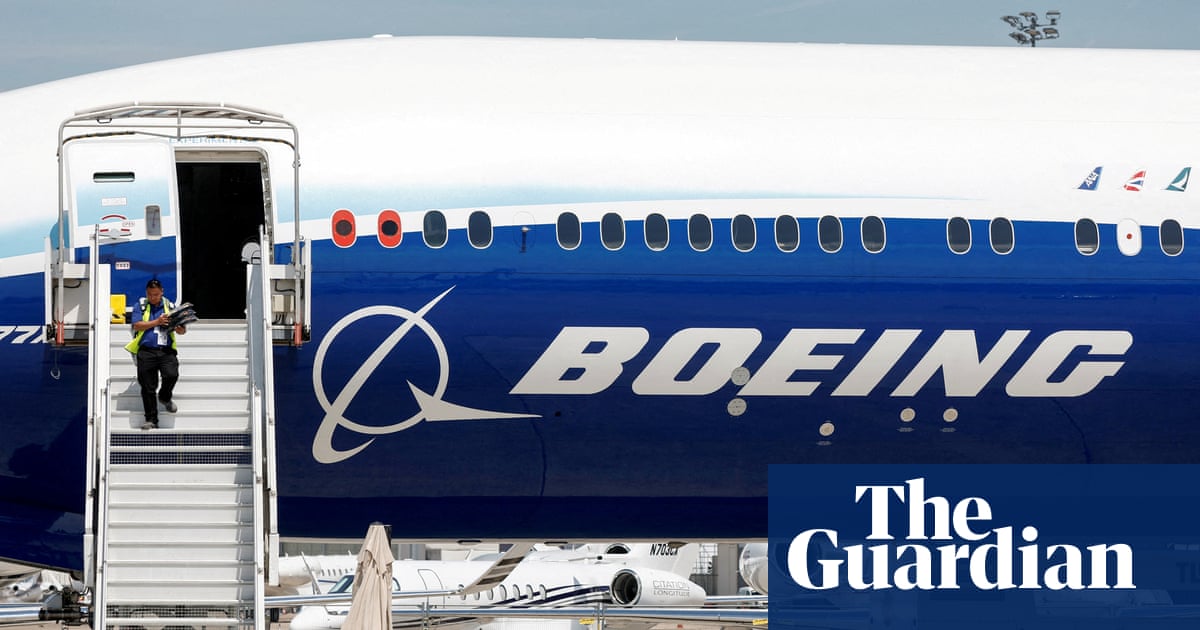Boeing CEO vows 'fundamental' culture change as strike vote begins
Boeing's new boss has vowed to “fundamentally” transform the culture inside the beleaguered aerospace giant, as its quarterly losses swelled to nearly $6 billion amid a massive strike.
As thousands of workers voted on a new contract on Wednesday, raising the prospect of an end to the crippling industrial action that began nearly six weeks ago, Boeing revealed the extent of its business' losses for a horrendous year.
The US firm's core operating loss widened to $5.99 billion in the three months to September 30, up from $1.09 billion in the same period last year. Revenue fell 1% to $17.8 billion.
Kelly Ortberg, Boeing's CEO, outlined three major challenges after the high-profile safety crisis and operational troubles: Confidence in the company has “eroded,” it has too much debt and “serious performance flaws” have disappointed customers, he said.
About 33,000 Boeing workers in Washington and Oregon went on strike last month, halting production of the company's 737 Max, 767 and 777 jets amid a standoff over pay. A proposed deal – including a 35% wage increase – has been put to a vote, raising hopes that the end is in sight.
The vote comes amid a difficult year for Boeing. January's cabin panel blowout during a flight of a brand new Max jet sparked a fresh crisis over the safety and quality of its planes, as the group scrambled to address concerns from regulators, airlines and passengers.
The company's defense business is also under pressure, and a mission involving its Starliner spacecraft — which returned to Earth in September without the two astronauts it carried to the International Space Station — has raised questions about Boeing's troubled space business.
“It's a big ship that will take some time to turn around, but when it does, it has the potential to be great again,” Ortberg told Boeing employees and shareholders on Wednesday. While hinting at potential opportunities for the firm with its huge backlog of orders, he clarified that navigating its current woes would require a major overhaul.
He suggested that executives needed to be “closely integrated” with what was happening on the ground. “We have to be on the factory floor, in the back shop and in our engineering lab,” he wrote in a memo. “We need to know what's going on, not just with our products, but with our people.
“And most importantly, we need to stop worrying about problems and work better together to identify, fix and understand root causes.”
As Boeing continues to grapple with growing scrutiny, Ortberg invited employees and investors to judge him by the results of his actions rather than his intentions, vowing to be “relentless” in changing the Boeing culture “not just by words on a page.”
Boeing workers represented by the Washington state and Oregon-based International Association of Machinists had until 5 p.m. Wednesday to vote on a proposed new four-year contract.
Ortberg expressed optimism that they would approve the deal. “I'm committed to getting the team back and improving our relationship, so we don't become so disconnected in the future,” he said. “I am very optimistic that the package we have put forward will allow our employees to return to work so that we can immediately focus on recovering the company.”
A vote of approval would only be the start, however — “It's a lot harder to turn it on than it is to turn it off,” Ortberg noted — and the company still has a long way to go. “This includes stabilizing our business, improving the execution of development programs, streamlining the portfolio to do what we can and restoring the balance sheet so that we have a path to our next commercial aircraft,” he said.
Boeing shares fell more than 1% in early trading in New York on Wednesday.

